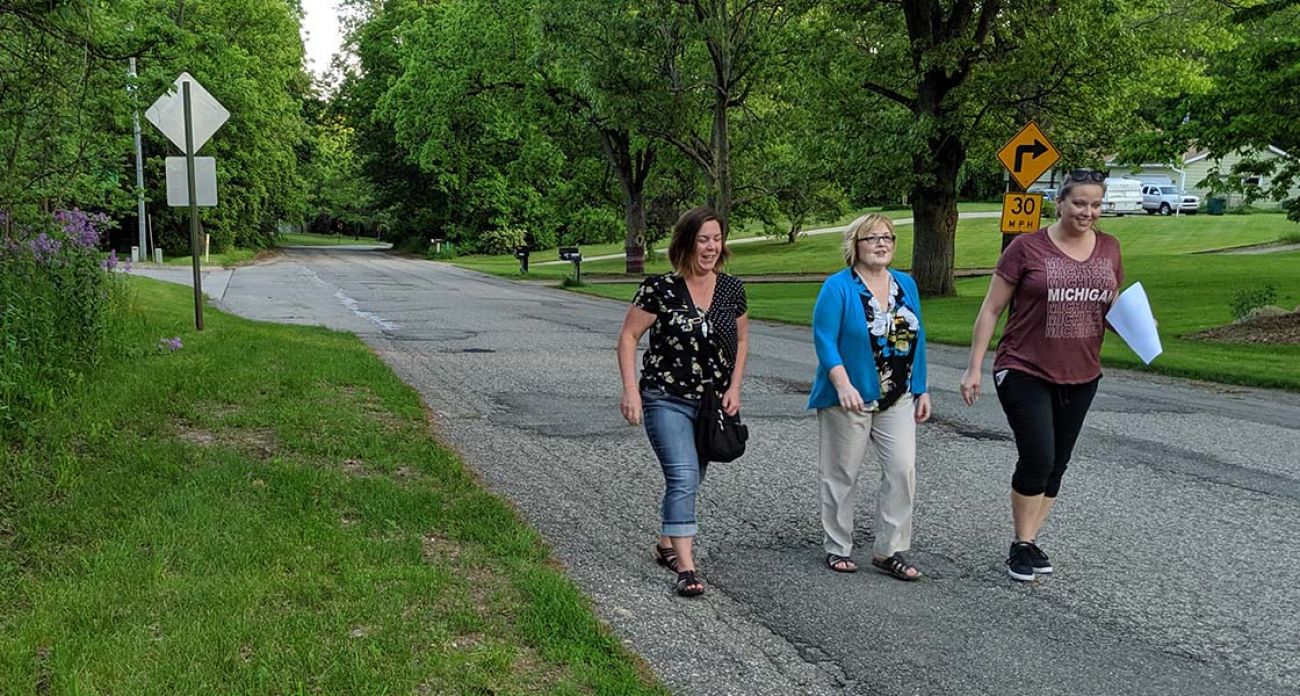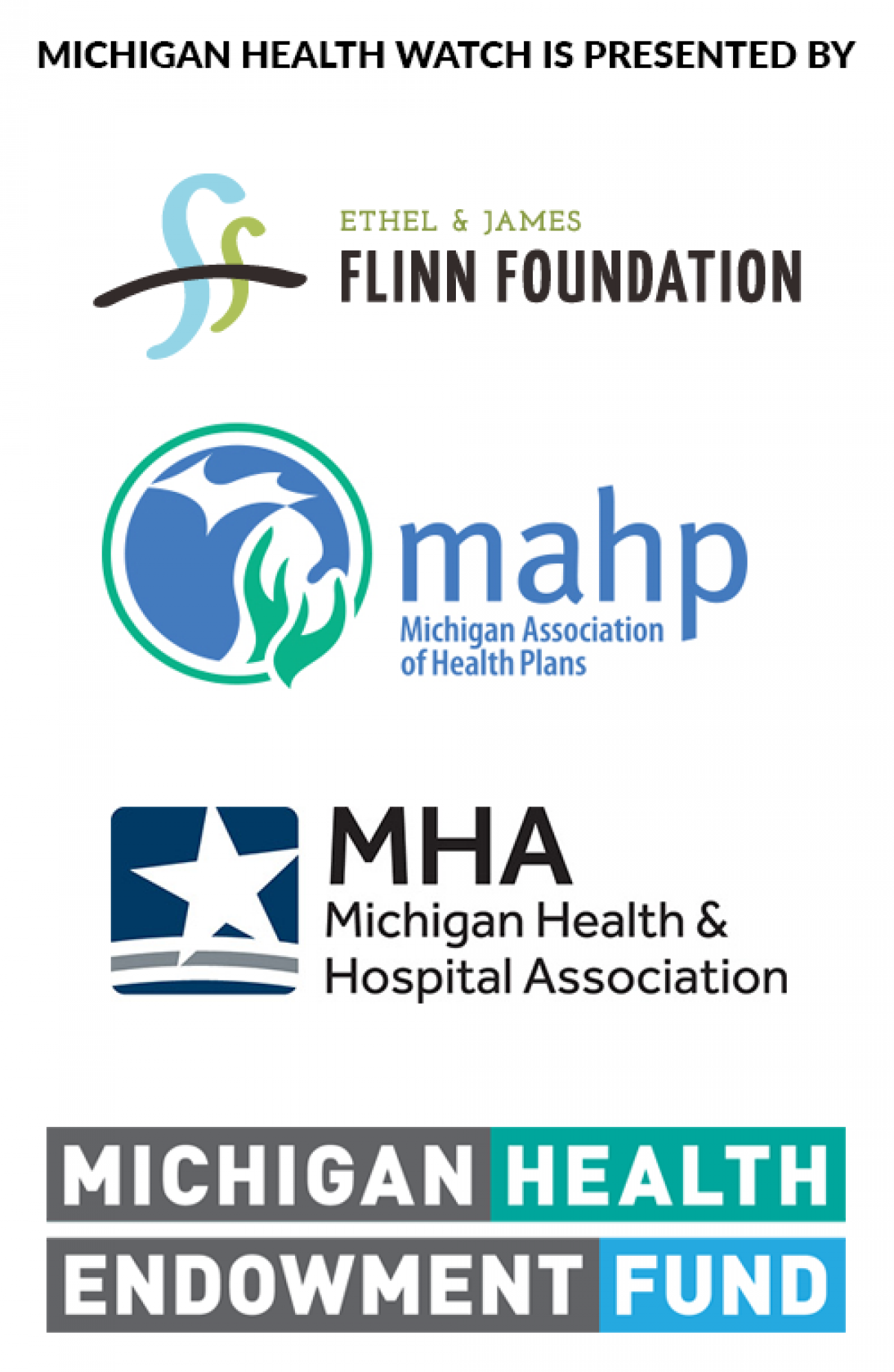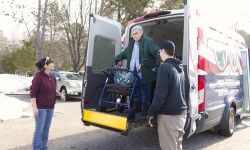Amid PFAS nightmare, unlikely activists are born in Michigan

BELMONT - That none of them can easily pronounce the name of the conference they’re attending says as much about their unlikely roles in fighting PFAS toxins as do their real jobs – moms, a teacher, an office assistant, a psychologist for people with disabilities.
“The PFAS conference in Boston - that’s what we call it,” said Jenny Carney, a 39-year-old executive assistant and mother of two.
This week, Carney and two other Kent County women traveled to Northeastern University for the “Per- and Polyfluoroalkyl Substances: Second National Conference” to share their experiences after health officials in 2017 informed their northern Kent County community that hundreds of wells were contaminated with PFAS. The man-made chemicals have been used for decades in the manufacture of non-stick cookware, water-repellent clothing, stain resistant fabrics and carpets, some cosmetics and firefighting foams.
“Our role is to put a face on this, to show them that we’re not crackpots,” said Sandy Wynn-Stelt, a psychologist who, with Carney was joined in Boston by neighbor and teacher, Tobyn McNaughton.
Related PFAS stories:
- How toxic is PFAS? Exposed residents slow to aid research in Michigan
- Michigan PFAS by the numbers: How much is unsafe?
- Environmentalists outraged Michigan warning about PFAS went unheeded
- Michigan to sue 3M as toxic PFAS chemicals taint waters
- In West Michigan, PFAS contamination leaves fruits and veggies to wither
- Opinion | We must determine if Michigan PFAS health risks actually exist
- Whitmer orders Michigan to set PFAS standards, setting up clash with GOP
Although they are some of the most public faces of the PFAS fallout in Kent County, the three women hadn’t met until 2017. That’s when health inspectors came to their homes here north of Grand Rapids, along their quiet, tree-lined streets. The inspectors brought jugs of water and instructions to no longer drink from their faucets.
The wells were most likely tainted by waste from a tannery operated for decades in nearby Rockford by the shoemaker Wolverine Worldwide, residents learned. Wolverine used Scotchgard, which contains PFAS, in their products. Wolverine has sued 3M, the maker of Scotchgard.
PFAS chemicals have been linked with health problems, including fertility issues, increased cholesterol levels, compromised immune systems, increased the risk of cancer and stunted growth, learning and behavior of infants and older children.
A day after health officials handed out jugs of water in 2017, children rode bikes in Wynn-Stelt’s driveway while their parents shared wine and food and shock in her kitchen.
The three women closed ranks to the outside world at first, but then began reaching out to media, lawyers and lawmakers and build their voice. They attended a Senate hearing in Washington, demanded meetings with state lawmakers, and this week flew to Boston.
Most of these neighbors didn’t know each other at all before uncertainty moved into their House Street neighborhood. Rather, these families had sought out these homes here because of the privacy afforded by sweeping, tree-packed green spaces.
Well, that’s not completely true, recalled Wynn-Stelt as she chuckled.
Her late husband, Joel, used to yell at the neighborhood kids whose motorbikes and noise sliced through the solitude he sought with books and birdhouses in their backyard, she said: “Sometimes, he was even out there in his pajamas, so yeah, they knew of him.”

Across U.S. 131 last week, McNaughton was exchanging texts and phone calls with Wynn-Stelt and Carney to finalize flight plans to Boston and remarks for the conference. She shook her head at the thought of it all.
She’s a teacher, mother and wife who, with her husband, Seth, was drawn here by the promise of quiet and space for a pole-barn and equipment. But a conference speaker - her?
She’s still caught off-guard when another parent will say they’ve seen her on TV. It’s as though she’s assumed someone else’s life.
“Sometimes,” she said, “it just doesn’t seem real.”
It’s also far from fun or easy.
In Boston, McNaughon, Carney and Wynn-Stelt shared with strangers the fear that has moved into their neighborhood, and their grief and guilt.
“Have you ever unknowingly poisoned your child? Do you know how much guilt comes with that even if it's 100 percent not your fault?” McNaughton had written for her prepared remarks, referring to her 3-year-old son, Jack.
His blood levels carry more than 50 times the PFAS of the average American adult, she said.
“In the beginning, it was just a few homes,” Carney explained in her prepared remarks. “I couldn’t imagine I’d spend the next year watching my picturesque town turn up with shocking levels of contamination over a widespread area.”

Wynn-Stelt had written that she found purpose after “months of depression, terror, anger and frustration,” reaching out to the neighbors.
On a recent evening after work, Carney and Wynn-Stelt joined Meahgan Schweinzger, another active neighbor, in passing out invitations to a neighborhood block party, now a second celebration of community forced from a common fight.
They strolled past bunnies that skittered into the underbrush along a fence strung with signs that read “Environmental contamination investigation ongoing” and past the three Wolverine shoes that another frustrated neighbor, Jim Penrod, has strung from a tree in front of his home.
And while they made small talk with neighbors, they also exchanged with them the latest news about the PFAS exposure assessment underway now by the Michigan Department of Health & Human Services.
As the sun dipped below the tree-line, Wynn-Stelt returned home, thanking a couple of neighbors who had stopped by her home to cut some overhanging tree limbs -- for her, she remarked, the widow of the guy who used to glare at neighbor kids in his pajamas.
“I can’t do a lot, and I can’t trim trees or help my neighbors that way, but the least I can do is try to keep these children safe,” Wynn-Stelt said. “I think that’s what we’re all working for.”
See what new members are saying about why they donated to Bridge Michigan:
- “In order for this information to be accurate and unbiased it must be underwritten by its readers, not by special interests.” - Larry S.
- “Not many other media sources report on the topics Bridge does.” - Susan B.
- “Your journalism is outstanding and rare these days.” - Mark S.
If you want to ensure the future of nonpartisan, nonprofit Michigan journalism, please become a member today. You, too, will be asked why you donated and maybe we'll feature your quote next time!








